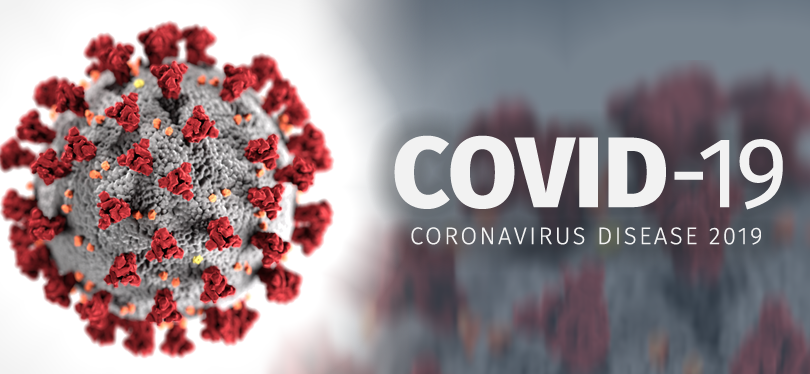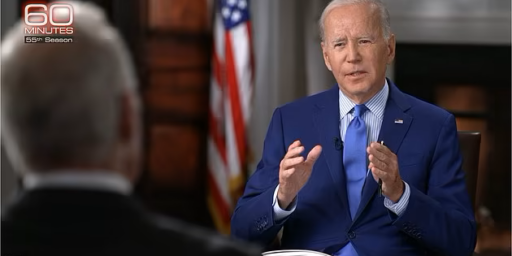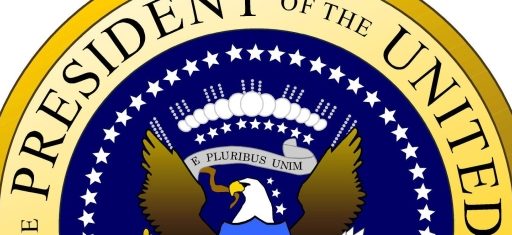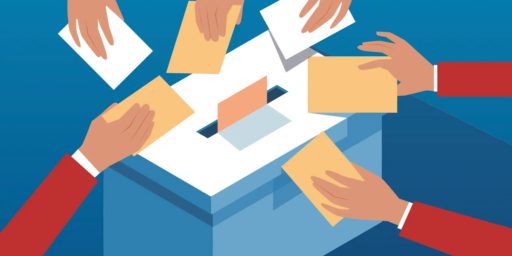More Evidence that Politics Matters
Cases per state adjusted for population.

In writing my previous post, which got longer than intended, I noticed the following when looking at the NYT data, which is a pattern of red states having higher case counts, adjusted for population, than blue states (with some exceptions). I was initially struck that the top ten consisted of deep red state, so I looked at the whole list.

This is not proof of anything, but it is definitely something that needs to be deeply studied when this is all over, as it significantly suggests that public health policy choices mattered greatly during the pandemic.
Note that the issue is not just one of ranking, but there is a major difference between the numbers at the top of the list and those at the bottom.






https://dangoodspeed.com/covid/total-cases-since-june
This website has mesmerized me for the last 18 months.
Studied, yes. But (and sorry about the cliche) correlation does not equal causation. It could be argued that in most states the politicians set the policy the greatest number of impassioned voters wanted. If anyone is ever able to tease out cause and effect as to why so many red state voters wanted stupid and destructive policies, I bet you it will be something like 75% media figures including Fox and AM radio hosts, 20% foreign meddling, and about 5% the influence of the politicians.
Sure, politicians, in theory, could have gone against the will of those impassioned voters, but… they were politicians. They would almost certainly have been bounced from office at the first opportunity (if not assassinated by some fanatic), and replaced with someone willing to do what the mob wanted.
@MarkedMan:
Indeed, which is why I noted, “This is not proof of anything.”
Still, the ongoing mound of evidence is suggestive of differing policy approaches and the general political behavior of certain groups of people to have been of significance.
BTW–that would fit into the rubric “politics matters.”
@MarkedMan:
This may get to the core of some of our disagreements in other posts (or what I perceive of as you misunderstanding me, at least in part) because I would consider all of that to be “politics” (that is, politics is not just what politicians do).
I am only surprised that Misery came in at 29. I blame it on… I’m sorry, attribute to our middling geographic location. I can assure you, our policies were little better than North Tennessee.
Causal density allows us to attribute (OzarkHillbilly, 2021) and ignore according to our biases. Statistical controls (and other methodological techniques) are useful in reducing some of the noise, but they too are tragically limited. And they have the added demerit of giving “intelligent” people further reason to overestimate their understanding and sophistication.
Note: I am not suggesting that the OP was doing this. My comment is more of a blanket observation (and self indictment) than anything else.
I think our disagreement is real rather than a misunderstanding. I think you
weight more highly than I do the chance our political leaders are going to make choices that impact the outcome of the pandemic. And that if they at least spoke up, they would have a significant impact on peoples behavior. Note that above, you said that health policy choices mattered greatly. I think we are both in total agreement that health policy matters. I just don’t think that the root cause of Red State disfunction is the choices government officials made. They simply reflected the overwhelming will of the people of their state. The real question is why the people of those states feel the way they do. In the past you’ve made the case that political leaders could have had a bigger impact, but in the intervening time I haven’t seen much evidence of that.
An analogy: I’m sure we both agree that the evidence is overwhelming that regularly changing your car’s oil and properly inflating the tires and doing scheduled maintenance will result in your car lasting longer. Some of us do that maintenance and some of us don’t. There’s an analog to health policy there. But now it veers off into strange territory. There are certain people who have decided they don’t want to hear about it. They have chosen not to believe that maintenance matters and have surrounded themselves with the like minded. A whole industry has developed for telling them what they want to hear. These people exist in all states but in certain states their numbers and passion is such that they control the state. Yes, they elect politicians that parrot or at least don’t interfere with their beliefs, but that occurs after the damage has already been done.
To me, the interesting question is, “what is it about those states that their numbers are so high they were able to take over the state?”
The question of what difference it would have made if the politicians had tried to enforce better policies is just a thought experiment. It would be like asking how much a difference it would have made if George Wallace, in the last months before the presidential vote, had encouraged his followers to embrace desegregation and abandon Jim Crow.
@MarkedMan: While there are some real disagreements, I think that you are misunderstanding me in a variety of ways. For example, I am not suggesting that the relationship is one way (i.e., that it is solely elite signals to masses). I fully recognize the multi-way street in question, just as it is clear that the media environment matters.
But all of this is “politics” (and I chose that word for the title purposefully). I recognize that I mention policy in the post.
@Steven L. Taylor: Politics? Perhaps, but only insofar as that means “culture”. To me, politics is a relatively minor part of culture, the part about who gets put into positions of authority and the jockeying that accompanies that. But it is the exception that someone who rose to power through politics actually has a significant impact on the direction of the entity they control.
Has anyone seen or can anyone recommend sources of analysis for analyzing the incidence of COVID19 positive rates, death from COVID19, and population density? Instead of, or in tandem with, this analysis by just geographic location.
I am curious if Red states have a less dense population overall, which may significantly affect spread of COVID19, and show counterintuitive rates of infections. Meaning we can see even more signal that something about the activities, and the conditions those activities occurred in, lead to faster and longer rates of infection. But then I am not a statistician, public health analyst, or epidemiologist…
The politics referenced here is also called leadership. And the results betray the purpose behind the politics practiced by the two major parties.
The Republican party leads in a way that retains support from their base, which today is a solid minority of voters. They win elections through subtraction – and subtraction can happen by any means necessary: cynically driven apathy (BoTH SiDEs aRe thE SamE!), voter restrictions, death of blue-state voters – whatever gets the job done. There’s no ethical rubric applied.
The Democratic party leads in a way that encourages as many people to vote as possible – even those whom the R’s would call “undesirables” – like racial minorities, criminals, youth, and poor urban folks. Because D policies are popular with the masses, they work to get the masses to vote.
This is partly why the Rs have sided with the virus in the COVID situation – pushing back on government mandates is a position they locked themselves into when they decided to be a small-tent, racist, populist party – and those tendencies only became worse with Trump on the scene. Kushner set the stage when he (mis)calculated that urban centers (leaning blue) would be hardest hit by an airborne disease.
Again, ethics have nothing to do with Republican policy – it’s all about gaining and retaining power. And that power is not because there’s some bold vision for the future, but rather simply to prevent Democrats from enabling the programs they favor. To maintain the status-quo that got those powerful people where they are today. Why break a system that works for me?
I’m sick of the cynical game, and I never would have predicted they’d take it this far.
@MarkedMan:
“Politics” is about contested power and I, speaking as a political scientist, would say that culture is one of several influences over politics. This is why I think you misunderstand me–I think you are applying very narrow definitions of “politics” and are perhaps thinking solely of, say, things directly linked to maybe elections or what “politicians” do.
Two definitions of politics that come to mind. One is from one of my undegrad professors, David Easton: the “authoritative allocation of values for a society.” Another is from Harold Lasswell (IIRC): who gets what, when, and how.
For that matter, I tend to think Aristotle was right when he described politics as the “master science” that governed all human interaction in the polis (the city-state).
All of that is to say that politics is not part of culture, but culture is part of politics since culture (racial, economic, religious, ethnic, etc.) dictates what people want, need, value, etc. (and therefore what they are willing to fight over, vote for, organize around).
My view of politics is pretty expansive, but I think yours is very specific. Hence, I think you do misunderstand some of my claims. That doesn’t make me right and you wrong (although, obviously, I have my views on that :), but I think it could recast some of our interactions.
(So, when I say the politics of, say, Alabama, influences the Covid outcomes, I would include in that statement the state’s culture, which shapes its partisan orientation, and hence what it expects, on a mass level, of its politicians, etc.).
@Steven L. Taylor:
So, Steven, serious question: what influences/factors are NOT politics, in your taxonomy?
In mine, when Fox News decides to make Critical Race Theory a wedge issue, that’s not “politics”. No politicians are involved in causing that; they only decide to get on board the bandwagon later. Similarly, when QAnon spreads a rumor about microchips in COVID-19 vaccines, that’s not “politics” until some politician climbs on board.
It seems to me (and I gather to MarkedMan also) that it matters very much who is the leader and who is the follower here, if you want to understand the mechanisms of what is happening. Otherwise, you’re at risk of concluding that living a long time causes people to speak Japanese…
@Steven L. Taylor:
Setting aside how badly both of those “definitions” diverge from how the word is used in ordinary English, they also diverge pretty sharply from how you have used the term in past discussions here. Under Easton’s definition, there is no such thing as “minority rule”. Under Lasswell’s, there is nothing that is NOT “politics”, which should have been your first rejoinder to MarkedMan, not your 27th. (And at which point the economists in the room say “Oh, when you say politics you just mean economics?”)
@DrDaveT:
Politics is a pretty broad arena, to be certain. And, as noted, the notion of politics being a broad arena is at least as old as Aristotle, so I am hardly stepping on some tenuous ledge here.
Politics is essentially about how people have power over other people. So, yes, the FNC guy talking about CRT and then that burgeoning into what we are seeing at school boards is rather clearly politics.
To limit “politics” to things originated by politicians is incredibly reductive, and not at all very useful.
Look, you have every right not to like my usage, but it seems to me I might have some benefit of the doubt, given this is my field of study, which I have been studying since the mid-80s.
That is to say, I am not asking you to accept what I am saying without question, nor am I assuming that you would ultimately agree with me, but it seems that when someone in a field asserts a certain meaning to terms and concepts, that maybe that a step back to ask why is in order, rather than just an assertion that they are wrong. Again: Artistotle. Not a new idea.
BTW, I have no idea why you make that assertion. Why couldn’t the minority be making the allocation?
To some degree, that is true, although it is a lot more complicated than that. (and I am not sure what your point is about the 27th rejoinder–I only just figured out that his definition of “politics” is as narrow as it is).
FWIW, those definitions are good starting spots for discussion, but I hardly feel that two quotes in a comment box is sufficient.
@DrDaveT:
Indeed. There is some truth to this aside.
But rather than back down, I will say that yes: most human interactions are linked to the political in some way. I don’t think I have ever suggested otherwise, so this is not some new thing I am springing.
@DrDaveT:
First, “Fox News” does not decide anything, even if you mean that a given producer or talking head decides to raise an issue. An issue like CRT cannot be manufactured. It has to have context in which to grow. The politics of George Floyd, BLM, and the general presence of racial politics writ large were all necessary to make that issue stick.
Saying that Fox News created the CRT issue is like saying that a planet grows without soil in which to be planted, without water and nutrients to make it grow, and without sunlight to fuel photosynthesis.
Second, I cannot understand the term “wedge issue” outside of the realm of politics.
(Side note: FNC itself exists because of the calculation that people of certain political persuasions would tune into a “conservative” news network–that fact alone makes FNC part of politics–how could it be seen otherwise?).
@Steven L. Taylor:
“Linked to the political in some way” does not mean the same thing as “politics”, and certainly does not mean “involving the behavior of political elites”. Your arguments in favor of the influence of elites seem to me to involve a series of sleight of hand moves in which “linked to the political in some way” eventually ends up placing the causal power in the hands of elites.
Neither MarkedMan (I suspect) nor I would deny that Fox News choosing to push some particular fake news story as a business strategy is “linked to the political in some way” — but where is the causal origin in this influence diagram? Who is initiating, and who is reacting? Who are the influencers, and who are the influenced? If the elites are usually the influenced, and not the originators, then it’s hard to conclude that they play an important role — especially if the ship would sail whether or not they take an oar.
But the more FNC is “part of politics”, the more you are admitting that political elites (and in particular party elites) aren’t the movers and shakers. You can’t have it both ways, unless you abandon all distinctions and say that whatever anyone does is politics, and whoever is making a difference is elite. That would be circular, but consistent — the claim that politics is dominated by elites becomes a tautology.
@DrDaveT:
So as to avoid the charge that I am changing my tune in some way in this conversation, I would refer you to my post of Augst 21, 2021, Ivermectin and Irresponsible Infotainment, wherein I clearly define FNC media personalities as elites giving cues:
I have never excluded mass media from the notion of “elite cues”–I really think you are misunderstanding a good bit of what I am saying because of the way you want to define certain terms. I will take the blame for not being clearer. My honest goal in these interchanges is to try an make myself clear and to figure out how much of a disagreement is really an honest disagreement and how much is miscommunication.
I will return to my previous comment:
I really, really do not understand how the term “wedge issue” is anything other than politics.
@DrDaveT:
Ok, just to clarify, you are responding to:
Let me clarify: most human behavior is political. Let’s not get hung up on my admittedly professorial phrasing in the above quote.
@DrDaveT:
An honest challenge: when and where did I say that “politics is dominated by elites”?
It seems to me that talking about “elite cues” is a far cry from “dominated by elites.”
I have noted the degree to which elite cues have shaped partisan response to vaccines and Covid in general.
I have noted the role that partisan identity makes this possible.
I have certainly talked (perhaps ad nauseam) about the degree to which our parties are non-hierarchical, and therefore subject to capture by relatively small sets of voters in primaries (which is the direct opposite of elite dominance).
One more:
I would, again, underscore:
I have never suggested, at least not on purpose (there is some danger in writing 5,00-2,000 word pieces that one becomes overly simplistic) that any of this is monodirectional or monocausal.
Elite cues, like seeds, need fertile ground to germinate, for example.
And elites also take cues from masses rather obviously, yes?
(Look, all of this is complex and multidirectional).